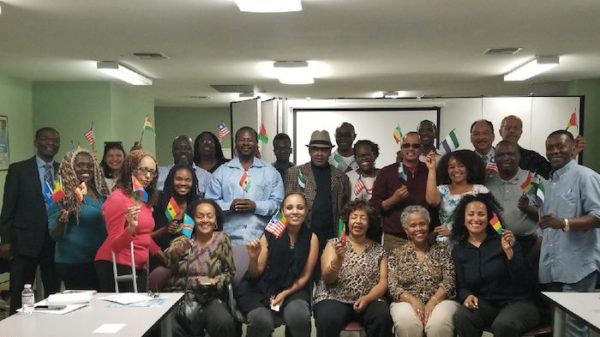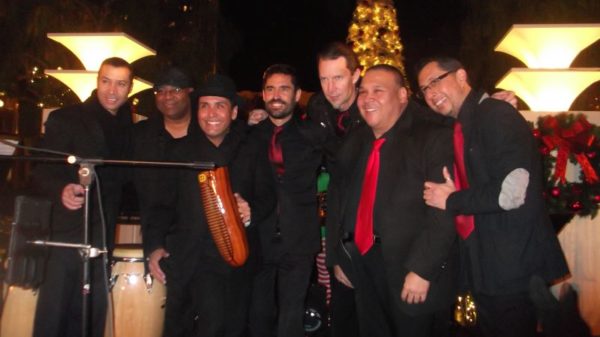How parents can I.D. family venue red flags; Expert spotlights avoidable facility and operational debacles exacerbating safety issues

Magazine, Living Well, Merilee Kern, MBA
The facts are sobering, gut-wrenching and indisputable. America’s children are needlessly suffering—and even dying—due to subpar safety standards at family entertainment venues across the board. This as evidenced, for one, by the ceaseless glut of reports on recent amusement and trampoline park adolescent deaths (many with details too horrific to recount), paralysis and a litany of other catastrophic injuries. But the problem is far more pervasive than that, as an array of other types of family-oriented centers and activities fraught with downright unacceptable facility flaws and inadequate policies, or a lack of suitable safety measures or policies all-together.
 Enter family entertainment venue executive Tim Murphy, Chief Executive Officer of Rebounderz Family Entertainment Centers. He’s a seasoned franchise and hospitality executive who, beyond his 30-plus year tenure with Rebounderz, has coached hundreds of executives, owners and businesses on best practices among public, private, startup and private equity companies in the international franchise, entertainment, restaurant, food, retail, resort, theme park, service, manufacturing, development and real estate space.
Enter family entertainment venue executive Tim Murphy, Chief Executive Officer of Rebounderz Family Entertainment Centers. He’s a seasoned franchise and hospitality executive who, beyond his 30-plus year tenure with Rebounderz, has coached hundreds of executives, owners and businesses on best practices among public, private, startup and private equity companies in the international franchise, entertainment, restaurant, food, retail, resort, theme park, service, manufacturing, development and real estate space.
Today, leveraging his more than three-decade tenure in the family hospitality space for the greater good, Murphy is on a mission to significantly improve safety standards not only within the trampoline park industry (having developed and wholeheartedly enforcing a litany of perfect patents related thereto), but with amusement/theme/activity park, playground, concert hall, and other such family establishments at large.
As part of his goal to help keep kids safe from needless injury and death, Murphy is also advising parents on how they can better assess if a facility they are frequenting has safety concerns—warning signs that, not only should the parent heed with caution, but also should be brought to management’s attention for the collective benefit of patrons.
Below, Murphy highlights four key red flags that a family entertainment venue needs to be immediately vetted for safety shortcomings:
- Lack of Proper Management. The number one safety protocol starts with suitable management. Does it appear that the managers are properly trained? Are they engaged with their attention to the facility, employees and its patrons or are they indelibly sequestered “in the back” somewhere? Does there appear to be safety checks and measures in place based on signage, how staffers are managing the floor and regularly checking on equipment and facilities? If the bathrooms are a mess, what might this say about property equipment care and upkeep? If any of these are apparent issues, it’s a major red flag and perhaps the tip of the iceberg among other issues you may find at the location.
- Lack of Properly Trained Team Members. Floor staffers are a direct reflection of the management’s training style, depth and frequency. Without proper staff training and experience on the grounds, it becomes problematic for everyone. One wrong or missed action by the team member could be detrimental to any family member or even employees. Is the attraction led by trained staff members that are demonstrably and thoroughly engaged in all aspects of the post for which they are responsible? Are they appropriately managing patrons who are engaging with people or equipment improperly? Are they actively ensuring any safety protocols are being adhered to by guests and continuing to check back? Are they demonstrating proper techniques on how to use equipment? Are they picking up litter or otherwise resolving problems and exuding pride in their role and environment? Are they interacting with customers professionally and with a genuine smile? An absence of these qualities, certainly in combination, is a red flag that attentiveness may be lacking.
- Improper Equipment and Standards. Does the equipment appear clean, properly installed and in good working condition at the venue? Or, do you see stains on the equipment or floors, rips, tears, and other obvious signs of equipment use and wear and tear? It’s a sign of poor management and maybe even location cash flow issues. Properly run facilities do daily inspections of all equipment and attractions to ensure that guests receive the best possible experience, as well as keep them safe while using the equipment in the space. Additionally, facility rules are paramount—extremely visible parameters of use that will ensure guests know exactly what not to do, also with staffers proactively ensuring every guest follows these rules. Ensuring there’s no question about what to do, or not to do, helps minimize the opportunity for injury, but also serves as a visual cue for the guest to follow to help aid in preventing injury. Finally, if the venue serves food, is the equipment (vending machines, counters, tables, ice cream machines, restrooms, etc.) clean, appear to be in good working order, and has received a formal state inspection posted? If the location serves alcohol, is the business properly licensed by the city, county and state? Cleanliness, good equipment operation and proper inspection signage gives patrons a good indication of the condition of the facility and how well both the staff and management is performing.
- Improper Facility & Safety Standards. Firstly and highly fundamentally, warning and rules signs should always be displayed, both in the activity areas, at each attraction, and in the restrooms. If there is few or entirely absent signage in this regard, safety is a concern. This is a baseline standard and if it’s sub-par it’s indicative that safety isn’t a priority for the location. Also, are team members verbally instructing guests on how to use equipment, and intervening when that is not the case? Or are they chatting amongst themselves letting patrons run amuck? Also, when applicable, are smaller kids segregated from more aggressive teenagers and adults, which can help prevent injuries to younger guests? And, do employee uniforms aptly differentiate team members from guests? This allows all guests to know who is in control of the facility and who to talk to, and as well as who is the authority at each attraction. As well, does the facility avail First Aid Kits (including defibrillators), team member headsets and PA systems that also help facilitate a safe and properly supervised environment? If management has taken care of all standards of safety, then all guests should have “maximum” fun with little safety concerns.
 Exacerbating unresolved safety concerns like the above is a litany of operational debacles that are equally avoidable. This often includes things like:
Exacerbating unresolved safety concerns like the above is a litany of operational debacles that are equally avoidable. This often includes things like:
- Small problems going unreported by staff and/or patrons
- Equipment and condition problems going unnoticed or unattended
- Deficiencies showing up in audits and inspections not being addressed
- Less time taken when doing pre-shift checks
- Fewer people participating in safety meeting discussions and ongoing education/training sessions
- Company and its leaders spending increasingly less time being proactive about safety
- Safety is never completely under control, because people are never under complete control
- Safety performance “flatlines”—even when the line goes through zero
“Ultimately, ongoing formal and informal inspections, staff and management training, safety videos, ongoing personnel evaluations and other safeguards are absolutely fundamental measures that can help a facility quickly identify and rectify structural and policy issues and ensure employees are aptly educated for the type venue at hand,” Murphy underscores. “Not only will this mitigate the chance of injury, but also help owners avoid expensive liability lawsuits.”
Branding, business and entrepreneurship success pundit, Merilee Kern, MBA, is an influential media voice and lauded communications strategist. As the Executive Editor and Producer of “The Luxe List International News Syndicate,” she’s a revered consumer product trends expert and travel industry voice of authority who spotlights noteworthy marketplace change makers, movers and shakers. Merilee may be reached online at www.TheLuxeList.com. Follow her on Twitter here: http://twitter.com/LuxeListEditor and Facebook here: www.Facebook.com/TheLuxeList.









